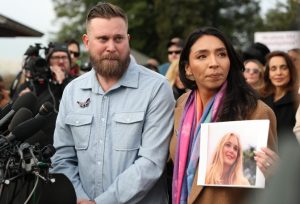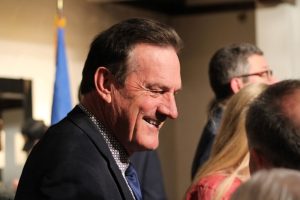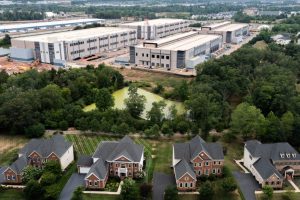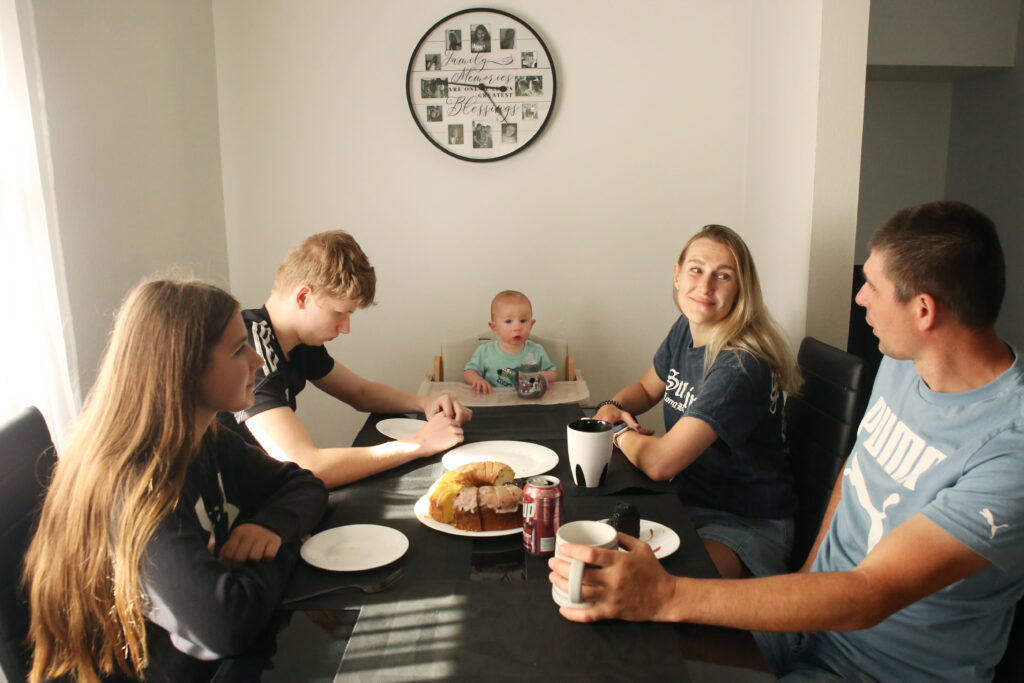
The Biliaze family, including parents Ilona and Valerii, sit at their kitchen table on May 12, 2025, in Watertown. (Makenzie Huber/South Dakota Searchlight)
Ilona Biliaze refreshed a government website on her phone in late July, checking for updates on her immigration case again and again.
Biliaze, her husband and two teenage children are displaced Ukrainians living in Watertown under a temporary legal status known as humanitarian parole after they fled the Russian invasion in 2022. She watched as the updates changed: Their decision was a month away. Then it was three weeks, then two months, then three months.
Watching the time grow was defeating, after she’d done everything she could think of to keep her family in their home. They were denied asylum, another temporary legal status; they shared their story to local news outlets and on social media; they tried reaching out to their congressional delegates. Their parole status was scheduled to expire Aug. 17.
‘This is our home’: Ukrainians settled in SD fear they’ll be forced to leave
She applied for the parole extension in June, and the office of U.S. Rep. Dusty Johnson, R-South Dakota, helped the family seek an expedited extension after they called his office in July. But the wait time on a decision kept increasing.
“I felt so bad,” Biliaze said. “It was too long, too late.”
Then, on July 28, it changed: Case approved.
She called her husband and sponsor family to share the news. Her sponsor, Susan Buhler, started crying on the phone, relieved her adopted family could stay. They shared hugs in the Biliazes’ driveway and marveled over the phone screen. The official documents arrived in the mail last week.
The two parents and their teenage children can live and work in the United States through August 2027. Their 10-month-old son is an American citizen, because he was born in Watertown.
“We feel safe here. This is our home,” Biliaze said.
The Biliazes are among 117,000 Ukrainians who came to the United States through Uniting for Ukraine (U4U). The humanitarian parole program is carried out under the U.S. Homeland Security secretary’s authority to allow noncitizens into the country with a sponsor on a temporary, case-by-case basis for urgent humanitarian reasons.
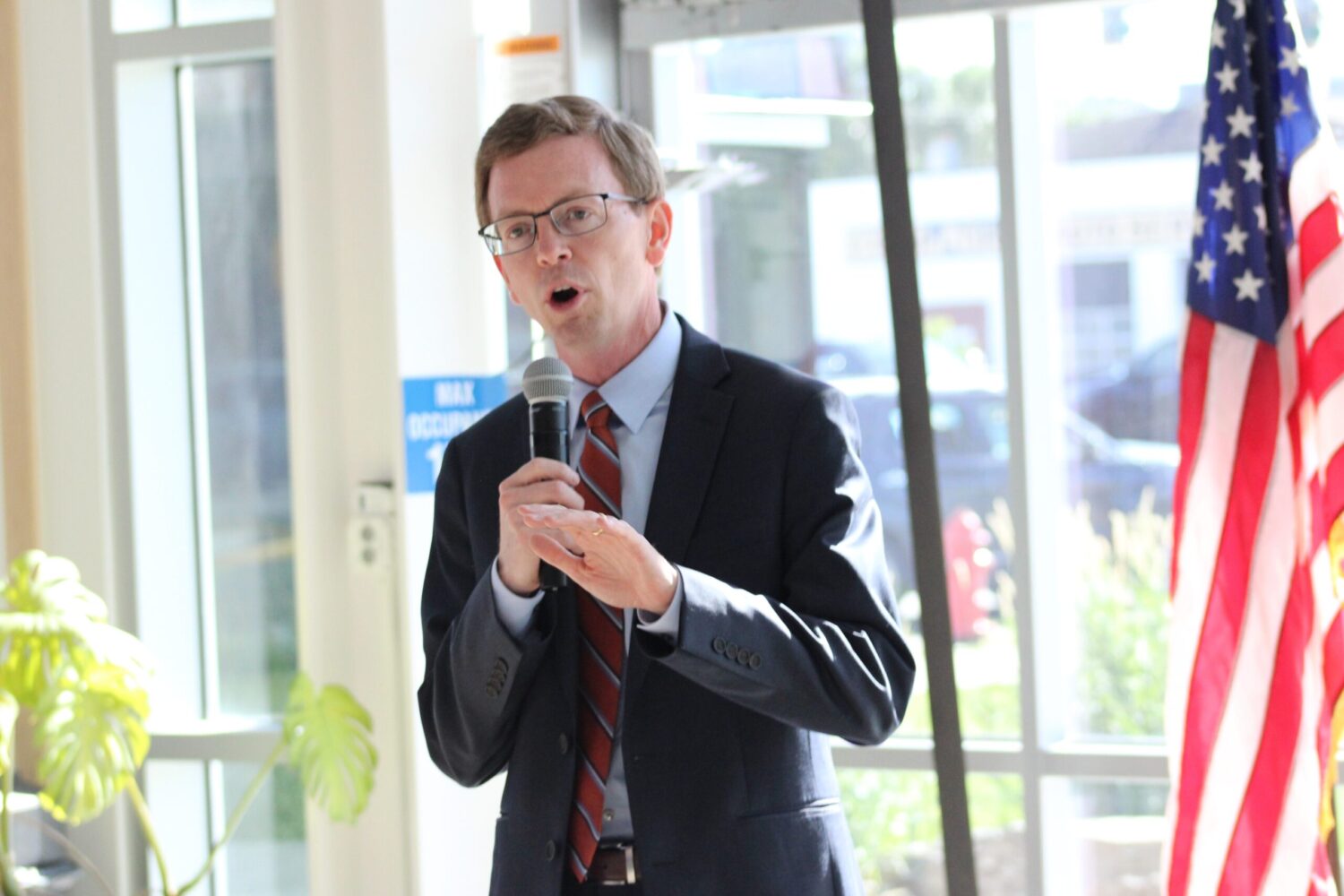
Johnson told South Dakota Searchlight his office was able to help by walking the Biliazes through the paperwork and flagging it for federal workers to understand its urgency.
“Most South Dakotans understand how important it is that when people are here legally, fleeing terrible, dangerous situations, that we have legal mechanisms to remain until they can safely return home,” Johnson said.
Johnson’s office has worked on 535 constituent cases so far this year, ranging from the Biliazes’ immigration case to helping other South Dakotans navigate the Interval Revenue Service, Social Security and Veterans Affairs. Fifty-three cases involved the U.S. Citizenship and Immigration Services.
South Dakota’s lone U.S. representative said that many Americans believe their congressional delegates only engage in political work, but constituent casework is where “nonpartisanship still reigns.”
“That’s our job: We’re supposed to advocate for South Dakotans, and that’s what we do,” Johnson said.
The Biliazes hope to make South Dakota their home permanently and plan to apply for green cards, realizing how fast two years pass by. Congress has not offered a special pathway to legal permanent residency specifically for Ukrainian parolees, like the one for Cubans.
Johnson said opening up a citizenship pathway for families like the Biliazes or those on other temporary visa programs would be politically difficult, but possible.
“When the southern border was in crisis, there was a limited appetite in Washington to talk about more legal pathways to residency in America,” Johnson said. “Now that we’ve regained operational control, there’s more of an opportunity to have those conversations.”
GET THE MORNING HEADLINES.



